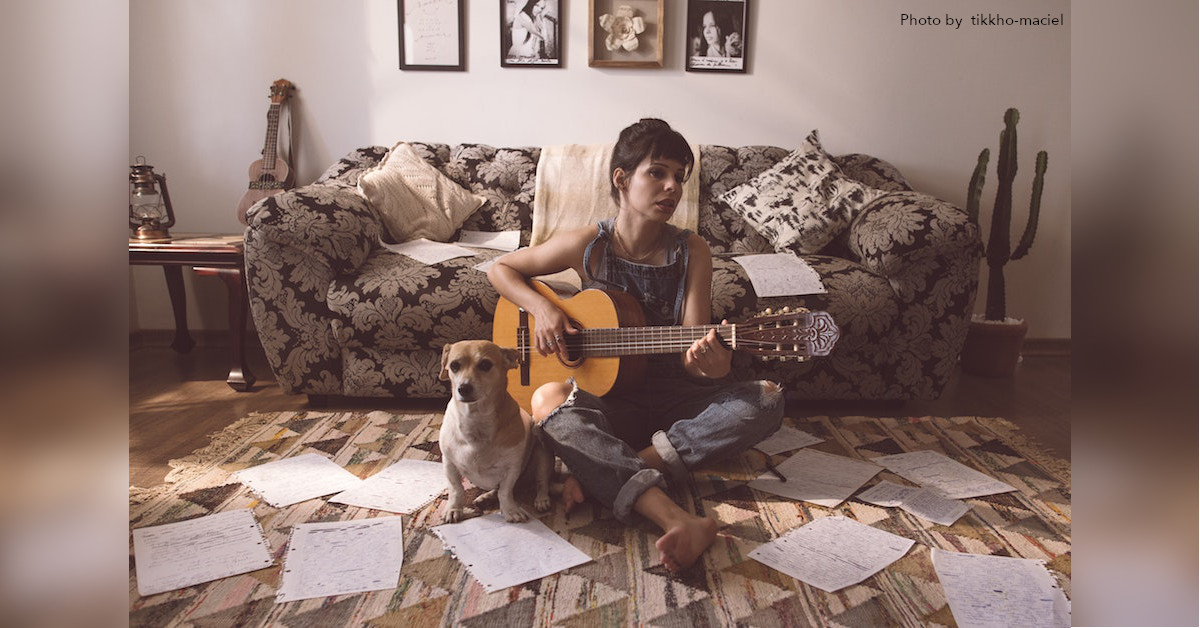Chords play an essential role in the emotional impact, memorability, and expressiveness of a song. While the U.S. Copyright Office doesn’t consider chords necessary when copyrighting a song—a melody and lyric are all you need—in order to make a good demo recording, you’ll need to choose chords that make the most of your melody and lyric.
To be perfectly clear: You don’t have to be great musician to be a great songwriter. Dazzling riffs and blazing fast guitar licks are definitely not required. A solid rhythm strum or piano chords keeping a steady beat will support a strong melody while giving it color and interest.
You can start a song by playing a few chords that you like or you can create a melody and look for chords as you go along. Whichever way you work, the chords you choose will have a powerful effect on the overall mood of your song.
Learn to play chords
There are a few ways you can quickly learn the basic chords you’ll need for songwriting.
1. YouTube has a lot of videos that will show you how to play chords. Look for a video that shows you the basic three-note chords (triads) in a scale. A clear image of a piano keyboard or guitar neck will help you locate the chord notes on your own instrument. You can buy an inexpensive guitar or beginner electronic keyboard on Amazon.com.
2. Take a few lessons from a local music teacher. Many music stores offer lessons. Your local community center or college may have classes. Or ask friends and neighbors to refer a teacher. If you decide to take lessons, be sure to tell the teacher you want to learn to read and play chords so you can play recent hit songs. You don’t need to learn note reading.
3. Instead of lessons, you can try one of the “instant” piano courses available on DVD or download, like the award-winning Play Piano In A Flash!
4. Look for online music courses for guitar or keyboard. Ultimate Guitar Pro has a good one for beginning guitar. Check out FlowKey for beginning piano.
Chord progressions
Every song has a chord progression—the sequence of chords that is played during the song. There are loads of simple chord progressions that depend on just three to four basic chords.
The good news is you don’t have to reinvent the wheel. Many songs use the same simple progressions and while song melodies and lyrics are copyrighted, these familiar chord progressions are not. C-A minor-F-G belongs to everyone! You can use this type of generic chord progression in your own songs.
These progressions aren’t hard to find. There are several common chord progressions on the Song Starters page on my songwriting blog site, MySongCoach.com. Or listen to recent hit songs and learn to play along on either guitar or keyboards. You’ll find chord progressions included (or links to them) in most of the Song Guides on this site. There are tons of YouTube videos that will show you how to play hit song chord progressions, too.
You can find the chord progression for most hit songs online. Just do a quick web search using the song title and the word “chords.” If you decide to use one of these chord progressions to practice writing a song of your own, just be sure you don’t use any of the melody or lyric from the hit song. These are protected by the copyright law.
Use a karaoke track: For those of you who don’t play an instrument—and even those who do— Karaoke tracks offer an instant backing track that can inspire ideas and get you singing your lyrics to a contemporary beat. Go ahead and write a song for friends and family or just for use them for songwriting practice. The track itself is copyrighted but generally the chords are not. Keep in mind, though, if you want to pitch your song commercially, you’ll need to record an entirely new instrumental track.
Find a collaborator: A cowriter can create a melody and chords for your lyric or you can write lyrics to your cowriter’s melody. Either way will work fine. You’ll find information on working with collaborators and where to find them on MySongCoach.com, my songwriting blog.
There are also songwriters, called topline writers, who write both melody and lyrics but not chords. They leave that to a music producer who gives them a music track to write to. In this case the top liner and music producer are considered collaborators. They will split the songwriting royalties between them.
